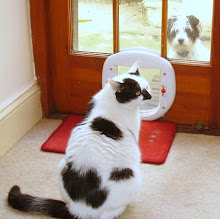As you may know, I am a seaside landlady. Well, when I’m not trying to decipher notes from an interview, or crouching over a hot computer, wrestling with words.
The common conception of a landlady, courtesy of Andy Capp cartoons, was of a blowsy lady with curlers and slippers, fag hanging out of the side of the mouth, while she ignored whatever request came her way. In reality I’m about as far removed from that as you could be, and nowadays, with the pressures of Housing Law, it doesn’t pay to be disinterested in your property or your tenants.
This is an ironic twist given that thirty years ago I lived in places of such squalor that one of them was condemned. I was nineteen at the time and found a room in a flat shared with four other people, all in their twenties. The address was Redcliffe Square, a grand sounding mansion block of decaying flats not far from Earl’s Court tube. To enter the flat we walked up a flight of stone steps from street level and up another flight of stairs onto a landing where there was a tiny kitchen.
None of us cooked much, so the bin liner in the corner of the room was a travesty of burnt toast, used tea bags and rancid milk bottles. As time went on rats came to gorge on its contents, and you could hear their muffled squeaks of delight as they found a succulent piece of egg or bacon rind.
The next flight of stairs led to a landing with two bedrooms and a living room. My bedroom was first, and consisted of a huge old wardrobe, a bed with no springs and a bedside table. There was no heating, and no bedside light, so when I wanted to turn the main light out, I crept to the end of the bed, put one foot on the floor in a strange dance that, with luck, turned the light off. I would then dive back into bed and lie there, listening to the mice rustling underneath my bed.
Up another flight of stairs was the bathroom, with an elderly gas heater that is now illegal. You had to keep the window open even in mid winter, to ensure there was enough ventilation, and the bath was so big that by the time you’d run a few inches of water, it was lukewarm at best. For this reason, baths were an ordeal not undertaken too often. I wonder whether we smelt – I never had any complaints but perhaps all my friends lived in similar squalor so we all smelt.
It never occurred to us to complain: we had no idea who the landlord was, and I’m sure they wouldn’t have done anything anyway. Landlords didn’t in those days. We paid rent, we had a gas fire in the living room and warm water, if we were lucky, in the bathroom – what more did we want? But in a curious way those were happy days. We had no expectations so no disappointments.
We were a strange mixture. There was the lanky ex-public school John, who was having an affair with a beautiful girl married to an Arab. She spent most of her time in front of our gas fire, her eyes glassy with opiates. Her friend slumbered by her side, rising only to eat, drink or go out to nightclubs. Another girl with such bad eczema that her hands were always bandaged. Two men who would take me to the pub on Sunday evenings. Nameless, faceless people who hover like stubborn ghosts in the corners of my memory.
On the way home from Earls Court tube there was a pub fraternised by young men clad in black who lounged outside, brandishing whips. Being a naïve 19 year old, I watched these men in fascination, wondering where they got their SS type uniforms from. One evening I was caught short on the way home and nipped into the ladies’. Whereas the pub was dark, noisy and thick with smoke and spilt beer, the ladies’ were spotless. I couldn’t understand it and told John when I got home.
He roared with laughter. “Of course it’s clean,” he said. “No one ever uses it.”
It took me a while to assimilate that.
Several months later we were told by the management company that owned the building that they were going to renovate the entire square and we had to get out because they were changing the locks. No such thing as tenant’s rights in those days.
I had nowhere else to live, so when Simon upstairs asked me if I wanted to move up with him and his six year old son, I said yes. He never asked me to share his bed but was delighted at how well I got on with his son.
Simon was a quiet, pleasant man and seemed grateful for my company but I felt out of sorts, nervy and uneasy. At any moment I wondered whether someone would beat no the door, demanding to change the locks. We lived in almost silence except for the burst of the TV and next door, someone who played Leonard Cohen from the time I went to bed until I got up for work.
His heavy, droning voice will forever be synonymous with lingering depression for me. I would lie there, wondering if the rest of my life would be spent feeling so panicked that I couldn’t move, let alone eat.
I wondered whether Simon could hear it too, and wonder why he was living in such a hovel with his young impressionable son. What had happened to the mother? Where would they go when we were finally thrown out? Did he have any family? Which was probably what he thought about me.
I didn’t last long. I couldn’t stand those heavy, black, sleepless nights. I scoured the Evening Standard and found somewhere else to live; a marginal improvement on the Redcliffe Square squalor. But I remember those months with a strange clarity, and wonder who lives in the flats now? They will have been spruced up, are no doubt eye watering sums in rent. But what about my flatmates, Simon and his son? What happened to them?
I think of it as the last of my innocence. A period of my life that stands out, even now, as unrelated to anything else. I’ve never been able to listen to Leonard Cohen since.
























